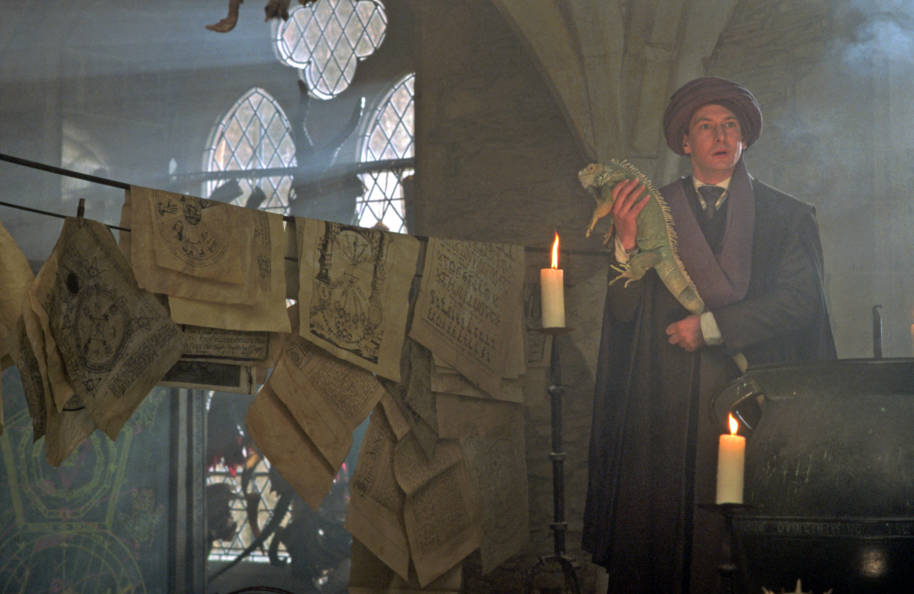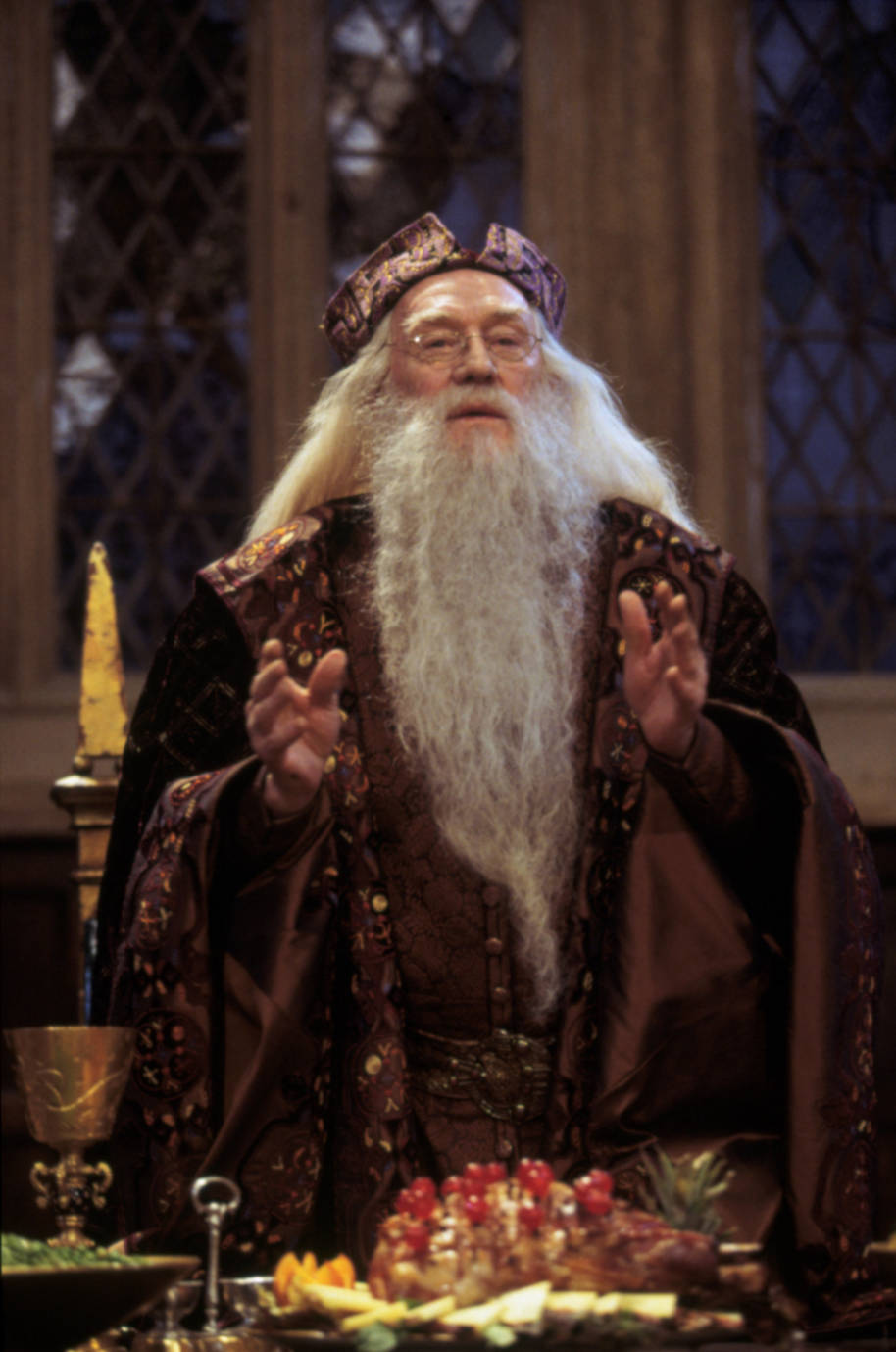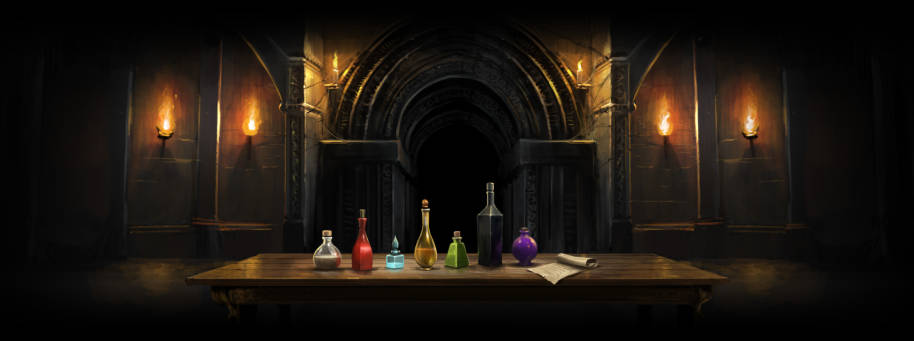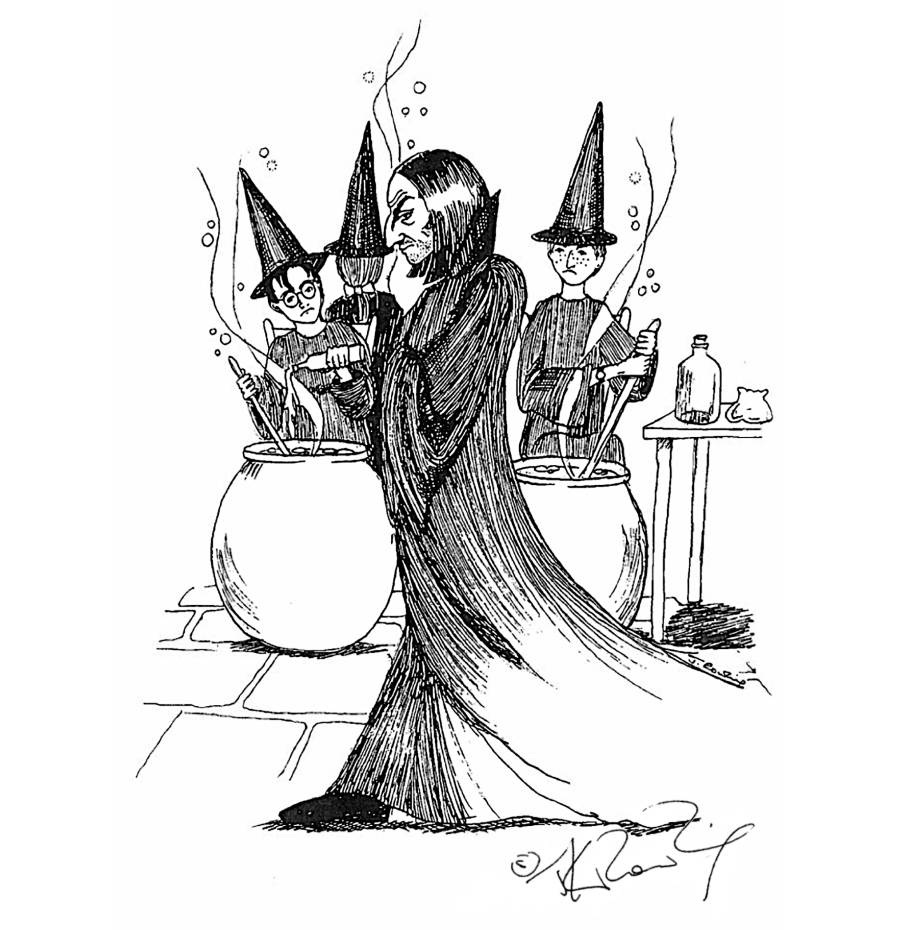nitwit blubber oddment tweak что это значит
Nitwit blubber oddment tweak что это значит
вот я кое-что нашла. но вроде это тоже.. просто предположение)
«Дамблдор попросил учеников терпимее относится к недостаткам своих товарищей, а именно:
«Ботаников» из Когтеврана не считать всех прочих «олухами»;
«Качков» из Гриффиндора не считать всех прочих «рохлями»;
«Арийцев» из Слизерина не считать всех прочих «лицами магловской национальности» («полным отстоем»);
«Простых парней» из Пуффендуя не считать всех прочих «воображалами» (теми, кто невесть что из себя корчит).»
«Так вот (считает один из блоггеров, см. статью). Дамблдор напоминает школярам, какими их могут видеть товарищи с других факультетов. Не в лучшие их моменты, конечно.
(Лично мне это объяснение кажется не очень убедительным. Слизеринцы чаще других доводят до слёз, чем плачут в открытую.)
Чего боятся первокурсники в Хогвартсе (и об этом Автор так или иначе упоминает)? Того же, чего боятся все школьники-новички.
Nitwit. Я не справлюсь. Я плохо подготовлен. Все увидят, что я дурак/дура.
Blubber. Мне не хватит смелости. Вдруг я расплачусь на глазах у всех? Меня назовут трусом/трусихой.
Oddment. Я не впишусь, я здесь чужой. Меня не будут выбирать (в играх и т.п.) Все поймут, что я здесь лишний.
Tweak. Мне никогда тут не понравится! Я вечно буду бояться. Может, ничего со мной и не сделают, но ежедневно, ежечасно будут пытаться меня переделать. (Кстати, дословно этими словами выразила свои опасения перед тренингом личностного роста одна взрослая участница, так что психологически наблюдение очень точное!)
И вот сам директор бросает эти слова в лицо перепуганным первоклашкам. На какое-то мгновение они обмирают: «Знает! Он всё знает! Догадался! Мне конец!» Боггарты колышутся в воздухе, готовятся к атаке.
А важный директор произносит «Спасибо» и садится. Зал взрывается смехом. Боггарты тают. Страх побеждён. Директор улыбается, глядя в тарелку: он только что продемонстрировал детям один из важнейших принципов, которым они научатся в школе. А они и не заметили, что обучение уже началось.»
Nitwit blubber oddment tweak что это значит
“Nitwit! Blubber! Oddment! Tweak!” Four Words for “Other”
A friend over at the Barnes and Noble Book Club I’m moderating this month wrote a longish post about the Four Houses, their Four Elements equivalents, and their probable spiritual qualities. I do enjoy thinking about Ravenclaw (Air), Hufflepuff (Earth), Gryffindor (Fire), and Slytherin (Water) along these lines, if I would have never come up with what Oriflamme did. More recently I have been tracking the choleric, phlegmatic, sanguine, and melancholic humors/temperaments in the various characters. Fun stuff.
Most interesting to me is how Ms. Rowling has used these traditionalist conceptions of character and physics to make postmodern points — and has done so from the first book of the series.
I am thinking about Dumbledore’s four word speech to the Four Houses after the sorting in Philosopher’s Stone. He says, “Nitwit! Blubber! Oddment! Tweak!” and sits down. This talk made enough of an impression on Harry (and Ms. Rowling thought it important enough) that he recalls these words during the eulogy at the Headmaster’s funeral in Prince.
The context of his talk is the Sorting of the ickle firsties into their respective houses. However off-the-wall, Albus seems to be making an important point about the divisions that have just been made and the identities these students are about to take on. In short, each of the four words is a “put-down” that one house would use to describe the “other” (anyone not part of their new house).
“Nitwit:” Ravenclaw is the house of witches and wizards of greater intelligence. As a rule, Rowena’s children will think of those not selected for membership in their select group as “nitwits” or dummies.
“Blubber:” Blubber, in contrast, is a word used on playgrounds in the English speaking world for “fat.” It is disparaging because children use it to be unkind to their peers who are heavier than the average kid and probably less athletic. Gryffindor, the jock or frat house, sees the “other” as less physically bold or courageous, for which condition, an eleven year-old would probably find “blubber” a handy signifier.
“Oddment:” This is a word from the world of sewing and fabrics. An oddment, if memory serves, is the remainder from the bolt of cloth, a remainder not large enough to be usable in making anything significant. Slytherins are lovers of “pure-blood” and, in this, “wholeness” or “integrity.” The “other” to a Slytherin is any witch or wizard born with insufficient purity, an insufficiency that makes them an oddment of less, even no value.
“Tweek:” Hufflepuff is the Hogwarts House for magical folk who were not smart, bold, or pure enough for the three Houses described above. From Malfoy’s comments in Madame Borkin’s in *Stone,” they seem to be the dustbin house, where the nobodies wind up. Cedric’s success in *Goblet* also suggests that glory is something of a stranger to Hufflepuff champions.
I have to doubt this is the Hufflepuff self-understanding. They look at the “other” and see “excess” or “imbalance” not “excellence” and “virtue” they lack. Hufflepuff witches and wizards are down-to-earth, humble (humilis), and real people. The “other” needs to be “tweeked” or adjusted to refine their excess and bring it to the mean, which as Aristotle teaches, is where virtue really lies.
The Headmaster doesn’t make a long speech about what a shame it is that they have been divided and will soon see themselves as better than their friends who have had the misfortune to be sorted into the “other” houses. As a good postmodern linguistics professor, he notes that the Sorting Hat is the vehicle of the metanarrative or Grand Myth that is the *real* evil of their world and throws out his comic marker for those capable of hearing what was not very well hidden in his short speech.
As Harry must act as Quintessence to the Four Houses and Four Magical Brethren and was destined to this role as “The Chosen One,” it is no accident that these words stayed with him. Here’s hoping he can make sense of this lesson in his Deathly Hallows efforts to unite the Magical World against Lord Voldemort.

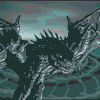
Летописец
Сообщений: 387
Откуда: Королевство без Короля
Пол:женский
Размах крыльев, м: 365

Борец за дело Кэрролла-Гигакса
Сообщений: 435
Откуда: г. Николаев (Украина)
Пол:мужской
Харизма: 330
Краткое содержание цитаты
Дамблдор попросил учеников терпимее относится к недостаткам своих товарищей, а именно:
«Ботаников» из Когтеврана не считать всех прочих «олухами»;
«Качков» из Гриффиндора не считать всех прочих «рохлями»;
«Арийцев» из Слизерина не считать всех прочих «лицами магловской национальности» («полным отстоем»);
«Простых парней» из Пуффендуя не считать всех прочих «воображалами» (теми, кто невесть что из себя корчит).

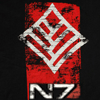
. НЕодинокая странница.
Сообщений: 483
Откуда: Серые Пределы Ростова-на-Дону
Пол:нас много!
Шагов к Свободе: 1235

“Nitwit! Blubber! Oddment! Tweak!” Four Words for “Other”
A friend over at the Barnes and Noble Book Club I’m moderating this month wrote a longish post about the Four Houses, their Four Elements equivalents, and their probable spiritual qualities. I do enjoy thinking about Ravenclaw (Air), Hufflepuff (Earth), Gryffindor (Fire), and Slytherin (Water) along these lines, if I would have never come up with what Oriflamme did. More recently I have been tracking the choleric, phlegmatic, sanguine, and melancholic humors/temperaments in the various characters. Fun stuff.
Most interesting to me is how Ms. Rowling has used these traditionalist conceptions of character and physics to make postmodern points — and has done so from the first book of the series.
I am thinking about Dumbledore’s four word speech to the Four Houses after the sorting in Philosopher’s Stone. He says, “Nitwit! Blubber! Oddment! Tweak!” and sits down. This talk made enough of an impression on Harry (and Ms. Rowling thought it important enough) that he recalls these words during the eulogy at the Headmaster’s funeral in Prince.
The context of his talk is the Sorting of the ickle firsties into their respective houses. However off-the-wall, Albus seems to be making an important point about the divisions that have just been made and the identities these students are about to take on. In short, each of the four words is a “put-down” that one house would use to describe the “other” (anyone not part of their new house).
“Nitwit:” Ravenclaw is the house of witches and wizards of greater intelligence. As a rule, Rowena’s children will think of those not selected for membership in their select group as “nitwits” or dummies.
“Blubber:” Blubber, in contrast, is a word used on playgrounds in the English speaking world for “fat.” It is disparaging because children use it to be unkind to their peers who are heavier than the average kid and probably less athletic. Gryffindor, the jock or frat house, sees the “other” as less physically bold or courageous, for which condition, an eleven year-old would probably find “blubber” a handy signifier.
“Oddment:” This is a word from the world of sewing and fabrics. An oddment, if memory serves, is the remainder from the bolt of cloth, a remainder not large enough to be usable in making anything significant. Slytherins are lovers of “pure-blood” and, in this, “wholeness” or “integrity.” The “other” to a Slytherin is any witch or wizard born with insufficient purity, an insufficiency that makes them an oddment of less, even no value.
“Tweek:” Hufflepuff is the Hogwarts House for magical folk who were not smart, bold, or pure enough for the three Houses described above. From Malfoy’s comments in Madame Malkin’s in *Stone,” they seem to be the dustbin house, where the nobodies wind up. Cedric’s success in *Goblet* also suggests that glory is something of a stranger to Hufflepuff champions.
I have to doubt this is the Hufflepuff self-understanding. They look at the “other” and see “excess” or “imbalance” not “excellence” and “virtue” they lack. Hufflepuff witches and wizards are down-to-earth, humble (humilis), and real people. The “other” needs to be “tweeked” or adjusted to refine their excess and bring it to the mean, which as Aristotle teaches, is where virtue really lies.
The Headmaster doesn’t make a long speech about what a shame it is that they have been divided and will soon see themselves as better than their friends who have had the misfortune to be sorted into the “other” houses. As a good postmodern linguistics professor, he notes that the Sorting Hat is the vehicle of the metanarrative or Grand Myth that is the *real* evil of their world and throws out his comic marker for those capable of hearing what was not very well hidden in his short speech.
As Harry must act as Quintessence to the Four Houses and Four Magical Brethren and was destined to this role as “The Chosen One,” it is no accident that these words stayed with him. Here’s hoping he can make sense of this lesson in his Deathly Hallows efforts to unite the Magical World against Lord Voldemort.
Nitwit! Blubber! Oddment! Tweak!
“Welcome!” he said. “Welcome to a new year at Hogwarts! Before we begin our banquet, I would like to say a few words. And here they are: Nitwit! Blubber! Oddment! Tweak!”
Commentary
These are the first words Harry ever hears Dumbledore speak, since his parting «Good luck, Harry» when leaving him swaddled on the Dursleys’ doorstep.
«Everybody clapped and cheered. Harry didn’t know whether to laugh or not.»
It’s a strange introduction to a wizard of Chocolate Frog card caliber, and it is understandable that Harry would ask Percy Weasley if Dumbledore is «a bit mad.»
The simplest and most plausible explanation for these words is that Dumbledore decides, quite literally, to say «a few words.» He wants the new students’ first impression of him to be of generosity and consideration and surprise; he will not keep them from their banquet and overwhelm them with information when they are already hungry and awestruck, but he wants to keep them interested for the real speech after the feast.
Could there be a more elaborate explanation? Of course there could. Albus Dumbledore is awfully cunning for a Gryffindor, and he has a knack for influencing impressionable students. It is plausible that the simplest explanation—that Dumbledore is a seasoned speaker and educator, and he knows how to get through to his students—is the most accurate. While the older students seem to take Dumbledore’s words in stride, suggesting that perhaps they are on to the tactics of the eccentric wizard by now, Harry enjoys the eventful feast. The thrills of speaking to a ghost, eating magically summoned food, and growing acquainted with his new peers are only slightly dampened by the pain in his scar that he attributes to a glance from Snape. Harry feels «warm and sleepy» by the time Dumbledore rises to speak again, at which point silence falls throughout the hall—an indication that the students are indeed prepared to listen.
6 questions we still have about Harry Potter and the Philosopher’s Stone
Published on Jun 27th 2017
Harry Potter and the Philosopher’s Stone raises some serious questions; questions about grief, about evil, about the everlasting struggle to come to terms with death. But we’re not interested in those today. Today we want to know about the weird stuff – weird stuff like…
How did Professor Quirrell sleep?
As you no doubt know, Professor Quirrell spent most of Philosopher’s Stone walking around with Voldemort on the back of his head: a shocking reveal that should in no way, shape or form be thought about any deeper. For if you do that, you’ll end up asking yourself the strangest questions about Quirrell’s daily routine.
For instance, how did Quirrell sleep? Because, of course, he couldn’t sleep on his back, lest one of the most powerful, most evil wizards who ever lived suffocated from having his face forced into a pillow. So… did he sleep on his side? Or maybe his belly? Did Quirrell and Voldemort stay up late chatting? Did Quirrell shower? And if so, did he have to reach behind his head and wash Voldemort’s face?
Whatever happened to ‘Hoggy Warty Hogwarts’?
Upon Harry’s first ever night at Hogwarts, after the Sorting Ceremony, Albus Dumbledore invited everyone to sing the Hogwarts school song ‘Hoggy Warty Hogwarts’. The lyrics are thus:
‘Hogwarts, Hogwarts, Hoggy Warty Hogwarts,
Teach us something please,
Whether we be old and bald
Or young with scabby knees,
Our heads could do with filling
With some interesting stuff,
For now they’re bare and full of air,
Dead flies and bits of fluff,
So teach us things worth knowing,
Bring back what we’ve forgot,
Just do your best, we’ll do the rest,
And learn until our brains all rot.’
The best part about the song is that it can be sung to any tune desired, and all the other staff seem to have a secret loathing of it. Now, we know dark times were ahead and all that, but we never got another rendition of this classic again. Did Professor McGonagall have a quiet word? Either way, it was weird and we miss it.
What does ‘Nitwit! Blubber! Oddment! Tweak!’ actually mean?
Another moment of wonderment from the start of term banquet was Albus Dumbledore’s parting words at the end of his speech: ‘Nitwit! Blubber! Oddment! Tweak!’ For years the world’s greatest scientists and linguists have been trying to figure out what on earth the headmaster was on about, but it still makes completely no sense. Maybe it’s all foreshadowing for later books in the series. Let’s see: nitwit means a daft person, blubber means extra fat, oddment means a portion of cut-off fabric, and tweak means to slightly adjust something. So that must mean… Nope, us neither.
What was Hagrid knitting on the train to London?
During Harry’s sudden trip to Diagon Alley, Hagrid was seen knitting what looked like a ‘canary-yellow circus tent’ on the train. What was this circus tent and what was its chief purpose? Was there a secret circus scene that was cut from the books? Was Hagrid fashioning himself a jazzy jacket? Was it the top-secret fourth part of the Deathly Hallows? We may never know.
Why was ‘Mars bright tonight’?
In the Forbidden Forest, Hagrid, Hermione and Harry met Ronan the slightly sombre centaur. He was sort of the Morrissey of centaurs, if you will. Upon trying to ask him if he’d seen anything unusual, Ronan simply replied to Hagrid with: ‘Mars is bright tonight.’ That’s nice, Ronan. Then Firenze turns up and also starts going on about Mars. What’s so great about Mars? In fact, Firenze loves Mars so much, he brings it up again in Order of the Phoenix. You know, because Mars is the God of War and war is coming, etc. Maybe planets just get bright sometimes, Firenze. You know, science?
Did Snape write the poem that accompanied the Potions logic puzzle?
Near the end of Philosopher’s Stone, when Harry, Ron and Hermione were trying to get to the eponymous stone, they were confronted by a series of puzzles. And one of them, a potions puzzle set up by Professor Snape, came with a poem. It goes like this:
‘Danger lies before you, while safety lies behind,
Two of us will help you, whichever you would find,
One among us seven will let you move ahead,
Another will transport the drinker back instead,
Two among our number hold only nettle wine,
Three of us are killers, waiting hidden in line.
Choose, unless you wish to stay here for evermore,
To help you in your choice, we give you these clues four:
First, however slyly the poison tries to hide
You will always find some on nettle wine’s left side;
Second, different are those who stand at either end,
But if you would move onwards, neither is your friend;
Third, as you see clearly, all are different size,
Neither dwarf nor giant holds death in their insides;
Fourth, the second left and the second on the right
Are twins once you taste them, though different at first sight.’
So. did Snape write that? If so, it’s lovely. Who knew the sallow Potions master had such a great command of meter? More Snape poetry, please.
To celebrate the 20th anniversary of Harry Potter and the Philosopher’s Stone, Pottermore will explore themes, moments, characters and much more from the very first Harry Potter story. Come back on Friday when we look at all the times we should have realised that Quirrell was the bad guy.








